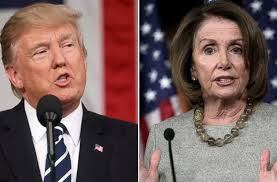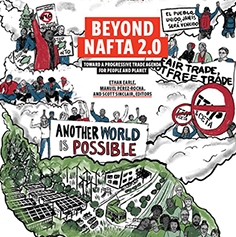As trade issues become increasingly prominent in the national political agenda we must maintain that there can be no trade justice without economic justice. As loud as Trump can be about his announcements on global trade, his policies have still resulted in no tangible benefit for workers or the environment. To the contrary, his tax bill, immigration policies, and the attack on labor, financial, and environmental regulations have represented constant attacks against working class communities across the country.
Amidst this highly unstable week at the White House, the Trump administration has announced $50 billion worth of Chinese imports. The administration has also retracted its initial bluff to impose tariffs on steel and aluminum imports from countries that are political allies to the government such as the European Union, Brazil, Australia, Argentina, and South Korea in addition to the exemptions already given to Mexico and Canada. The tariffs on China come after repeated calls from the defense community to not upset allies with the global sanctions, especially if the point is to target dumping by China’s steel industry.
The announcements confirm the thesis we were proposing last week: that Trump’s economic nationalism leans into war-mongering discourse and bullying tactics regardless of actual intentions to follow through on the threat. The administration has a communications strategy aimed at emitting the perception that Trump represents a revitalization of American global hegemony. Most folks will not get past the major headlines on the potential threat of a trade war, never learning that the United States Trade Representative is actually giving an exemption to the US’s major steel importers.
The same pattern can be observed with Trump’s leaving the Trans-Pacific Partnership and seeking to re-negotiate NAFTA. While we celebrate the end of the TPP in the US and urgently believe NAFTA must be replaced with a deal that benefits workers and protects the environment, we also see that Trump’s actions have not generated any of the progress we so urgently need to be seeing. While there has been slow and loud action on trade, Trump and the Republican Party have continued to go against the working class by eliminating protections and passing a tax bill that will further wealth inequality. While NAFTA negotiations drag on with no real commitments to enforce labor standards, the Environmental Protection Agency (EPA) is being dismantled and the Keystone XL and the Dakota Access pipelines were given the green light.
The tariffs imposed on China could do well for US industries harmed by the dumping of Chinese products on the global market. But Trump must know that the social movements of the United States will not tolerate blaming all of the US’s problems on other countries or on people of color when it is major corporations and corrupt politicians who are responsible for the incredible inequality, the constant attack on workers’ rights, and the environmental destruction that this country and much of the world faces. We want real change both on domestic and international policy that puts people and the planet before profits and war-mongering.
Trade for People and the Planet

